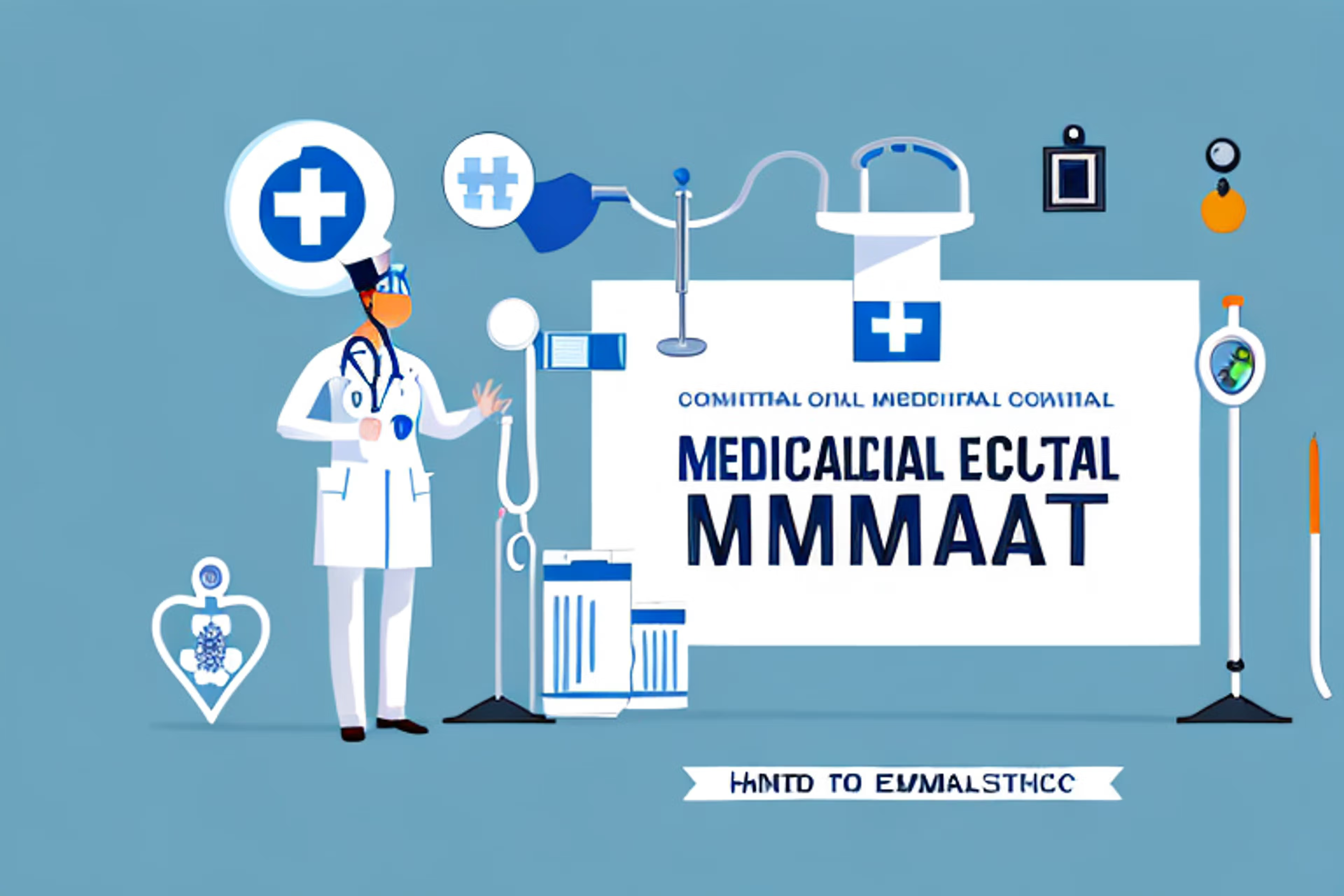Medical Schools Without MCAT: Your Options and How to Apply
Are you considering applying to medical school but dreading the thought of taking the MCAT? Look no further! Our article explores medical schools that don't require the MCAT and provides tips on how to apply.
Posted June 13, 2025

Table of Contents
If you're interested in attending medical school but are deterred by the thought of having to take the MCAT, know that there are alternative routes available. While many schools require MCAT scores as part of their application process, there are medical schools that don't, and more are starting to consider them. In this article, we'll explore the world of MCAT-free medical schools, including why they're important, how to apply to them, and what to expect once you're admitted.
Why are MCAT Scores Important for Medical School Admissions?
The MCAT, or Medical College Admission Test, is a standardized exam that medical schools use to evaluate a student's potential for success in their program. MCAT scores typically play a significant role in the admissions process, alongside other factors such as GPA, extracurricular activities, and interview performance. The exam is notoriously challenging and time-consuming to prepare for, and students who don't achieve high scores may be denied admission to their preferred medical schools.
Furthermore, MCAT scores can also impact a student's chances of receiving scholarships or financial aid. Many medical schools offer merit-based scholarships to students with exceptional MCAT scores, which can significantly reduce the financial burden of attending medical school. Additionally, some medical schools may require a minimum MCAT score for students to be eligible for certain types of financial aid, such as grants or loans. Therefore, achieving a high MCAT score not only increases a student's chances of getting accepted into medical school but can also have a significant impact on their financial future as a medical student.
Alternative Routes to Medical School Admissions
Despite the importance placed on MCAT scores, not all medical schools require them. Some schools have recognized the limitations of standardized tests and have developed alternative admissions pathways to consider a student's candidacy holistically, such as through the submission of a research project or portfolio of work related to medicine. These schools look for other indicators of a student's appropriate preparation for their programs, such as academic achievement, clinical experience, and leadership abilities.
Additionally, some medical schools offer special programs for students from underrepresented backgrounds or those who have faced significant challenges in their academic or personal lives. These programs may provide additional support and resources to help these students succeed in medical school and beyond. It's important for prospective medical students to research and consider all of their options when applying to medical school, as there may be alternative routes that better fit their individual strengths and experiences.
Criteria for Admission to Medical Schools Without MCAT
If you're interested in applying to a medical school that doesn't place an emphasis on MCAT scores, it's important to understand their application requirements. Every school has its own set of criteria for admission, but you can generally expect a strong academic record, relevant clinical experience, and leadership skills to be highly valued. Many schools also prefer to see extracurricular involvement, such as volunteering, research, or internships. Some MCAT-free schools may require specific courses to be completed, such as biochemistry or genetics, to demonstrate your understanding of scientific principles.
Another important factor to consider when applying to medical schools without MCAT is the type of program offered. Some schools may offer a traditional four-year program, while others may offer accelerated or combined degree programs. It's important to research and understand the different program options available to determine which one best fits your career goals and timeline.
Additionally, it's important to note that while MCAT scores may not be required for admission, they may still be considered as part of the application process. Some schools may request MCAT scores as supplemental information to help evaluate an applicant's academic abilities. Therefore, it's important to prepare for the MCAT exam even if you're applying to schools that don't require it.
Common Misconceptions about MCAT-Free Medical Schools
It's important to dispel some common myths surrounding MCAT-free medical schools, such as that they're easier to get into than traditional schools. While these schools may not require MCAT scores, their admissions process is still competitive, and their programs are just as rigorous as those that do require MCAT scores. Additionally, some schools may require students to take other entrance exams, such as the GRE or OAT, in lieu of the MCAT to evaluate their academic preparedness.
Top Medical Schools Without MCAT Requirements
Proving that you have what it takes to succeed in medical school without an MCAT score can be a challenge, but there are several well-respected schools that don't require MCAT scores as part of their application. These schools include New York University School of Medicine, Texas Tech University Health Sciences Center School of Medicine, and Loyola University Stritch School of Medicine. Each of these schools has a unique application process and set of criteria for admission, so be sure to research them thoroughly before deciding which ones to apply to.
How to Choose the Right Medical School Without MCAT for You
Choosing the right medical school without an MCAT requirement is crucial to your success, and there are a few key factors to consider when evaluating your options. First, consider the school's location, cost, and reputation to determine if it's the right fit for you. You may also want to consider the opportunities for clinical experience, research, and mentorship that the school offers, as well as the type of program they offer (traditional four-year vs. accelerated).
Pros and Cons of Attending a Medical School Without MCAT
While attending a medical school without an MCAT score can be a great way to avoid the stress and pressure of standardized testing, it's important to weigh the pros and cons before making a final decision. Advantages of attending an MCAT-free school include a more holistic admissions process, more flexibility in application requirements, and a focus on individual strengths over test scores. Potential disadvantages may include a lack of recognition and prestige compared to traditional schools, limited options for specialization, and a less competitive atmosphere may not be conducive to academic success.
Application Process for Medical Schools Without MCAT
The application process for medical schools without MCAT scores varies depending on the school, but it typically involves several key components, such as an application form, transcripts of academic records, letters of recommendation, and an essay or personal statement. Additionally, almost all MCAT-free schools will require clinical experience in the form of volunteer work, paid work, or shadowing. Some medical schools may ask for specific evidence of medical knowledge, such as a research project or certification course.
Tips for Writing a Strong Application Essay for MCAT-Free Medical Schools
A well-written application essay is a critical part of your application to an MCAT-free medical school. It allows you to showcase your personality, leadership skills, academic preparation, and unique ideas about medicine. Some tips to write a strong application essay include being authentic, showcasing your passion for healthcare, highlighting your relevant experiences and accomplishments, and being concise and thoughtful.
Interview and Selection Process for MCAT-Free Medical Schools
Once your application has been received, you may be invited for an on-campus interview. Interviews are typically conducted by faculty members and admissions staff from the medical school and are designed to evaluate your personality, communication skills, and motivation for becoming a doctor. Additionally, some schools may have a secondary application, which may include more essays, letters of recommendation, and personal statements. After all applications have been reviewed, the admissions committee will evaluate each candidate and make a final decision.
Financing Your Education at a Medical School Without MCAT
Attending medical school can be expensive, and it's important to understand the financial implications of attending an MCAT-free school. While some private medical schools can cost upwards of $100,000 per year, many MCAT-free schools, especially state-funded schools, are substantially less expensive. Federal financial aid, scholarships, and loans are available to students attending MCAT-free schools, similar to traditional schools. It's important to research all scholarship and financial aid options thoroughly before making your decision to attend.
Success Stories of Graduates from MCAT-Free Medical Schools
Graduates from MCAT-free medical schools have gone on to successful careers as physicians, researchers, and medical leaders. The admissions process at these schools is designed to identify students who are passionate about medicine and motivated to provide quality care to patients. While the lack of an MCAT score requirement may cause some to question the quality of education students receive at MCAT-free schools, graduates continue to be recognized for their excellence and innovation in their respective fields.
Future of MCAT-Free Admissions in the US
The future of MCAT-free admissions in the US is bright. Increasing numbers of medical schools are recognizing the limitations of standardized testing and are starting to consider alternative measures of a student's academic preparedness. Additionally, advocates for equitable access to education are calling for admissions processes that consider candidates holistically, rather than relying solely on test scores. As the healthcare industry continues to evolve, it's likely that MCAT-free admissions policies will become more widespread.
Conclusion: Is Applying to a MCAT-Free Medical School Right for You?
In conclusion, attending a medical school without an MCAT score requirement can be a great option for students who want to avoid the pressures of standardized testing and for those who have strengths beyond a strong test score. While these schools may not be as well-known as traditional schools, they offer a unique opportunity to receive a high-quality medical education while being evaluated holistically. Whether you decide to apply to an MCAT-free school or not, remember that the most important factor in achieving success in medical school and beyond is your passion for medicine and your commitment to quality patient care.











